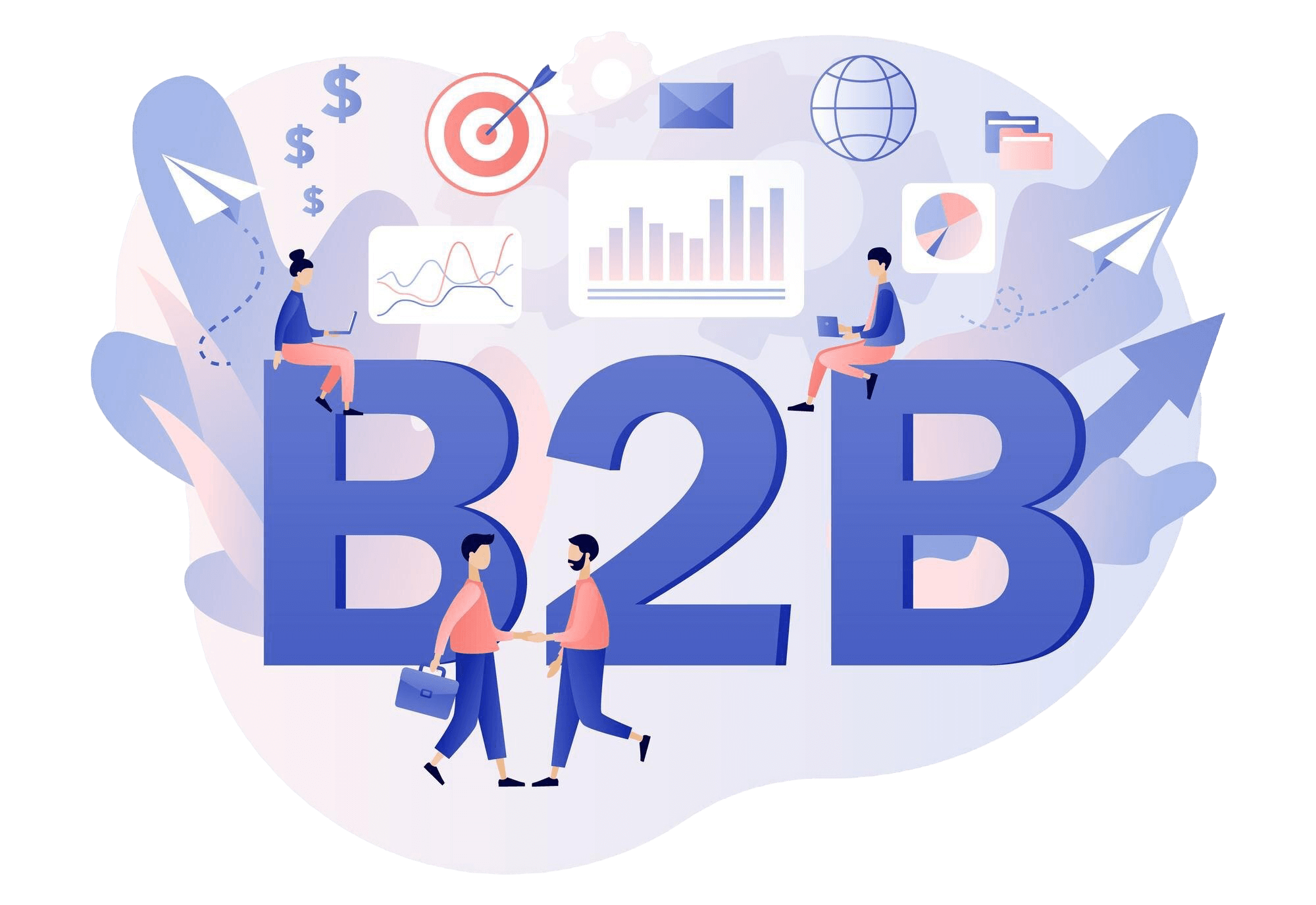B2B marketing strategies must keep pace with new trends, technologies, and customer expectations in the fast-evolving business landscape. With 2025 just around the corner, it’s critical to refine your approach to ensure your business stays competitive and relevant. In this blog, we’ll explore the most effective ways to improve your B2B marketing strategy, drive lead generation, and foster long-term business growth.
1# Leverage Data-Driven Marketing for Smarter Decision-Making
Data is the backbone of any successful marketing strategy. By leveraging analytics tools, you can gain deep insights into your target audience, monitor campaign performance, and optimize ROI.
- Invest in CRM and Marketing Automation Tools: Platforms like HubSpot and Salesforce provide actionable insights into customer behavior and help automate repetitive tasks.
- Utilize Predictive Analytics: Predict trends, anticipate customer needs, and allocate budgets effectively.
- Focus on Personalization: Use customer data to deliver tailored content and messaging that resonates with your audience.
2# Prioritize Account-Based Marketing (ABM)
Account-based marketing continues to dominate the B2B space as a highly targeted approach to driving engagement with high-value accounts.
- Identify Key Accounts: Focus your efforts on the most profitable clients or prospects.
- Align Sales and Marketing Teams: Collaboration between these teams ensures a unified approach to nurturing leads.
- Develop Hyper-Personalized Campaigns: Craft messaging that speaks directly to the unique needs of each account.
3# Embrace Video Marketing to Boost Engagement
Video content is one of the most engaging and versatile tools in the B2B marketer’s arsenal.
- Create Explainer Videos: Highlight how your product or service solves specific pain points.
- Host Webinars: Educate your audience while positioning your brand as an industry thought leader.
- Leverage Social Media Videos: Platforms like LinkedIn are ideal for sharing short, impactful video content.
4# Optimize Your Website for SEO and User Experience (UX)
Your website is often the first touchpoint for potential clients. A strong online presence, combined with effective SEO, can drive organic traffic and conversions.
- Conduct Keyword Research: Focus on long-tail keywords like “B2B marketing trends 2025” to capture specific search intent.
- Enhance Website Speed: Ensure fast load times to improve user experience and search rankings.
- Use Clear CTAs: Encourage visitors to take action with strategically placed call-to-action buttons.
5# Integrate AI and Chatbots for Real-Time Interaction
Artificial Intelligence (AI) is transforming how businesses interact with their customers. Incorporating AI-powered tools into your marketing strategy can improve efficiency and enhance customer experience.
- Deploy Chatbots: Provide instant support and nurture leads in real-time.
- Use AI for Predictive Campaigns: Analyze customer behavior and deliver personalized recommendations.
- Enhance Content Creation: Leverage AI tools like ChatGPT to produce high-quality, SEO-optimized content.
6# Invest in Thought Leadership and Content Marketing
Positioning your brand as a thought leader builds trust and authority in your industry.
- Publish In-Depth Blogs and Whitepapers: Share valuable insights to educate your audience.
- Host Industry-Specific Events: Conduct webinars, podcasts, or panel discussions.
- Contribute to Reputable Platforms: Share expertise on external websites to expand your reach.
7# Focus on Social Selling and Community Building
Social media is no longer just a platform for B2C companies. It’s a vital channel for B2B brands to connect with decision-makers and build communities.
- Leverage LinkedIn for Networking: Engage with prospects, share valuable content, and build meaningful relationships.
- Join Industry Groups: Participate in discussions to establish credibility.
- Encourage Employee Advocacy: Empower your team to share company content and amplify your brand’s reach.
8# Measure and Refine Your Strategy Continuously
The success of any marketing strategy lies in its adaptability. Regularly evaluate your performance metrics to ensure alignment with your goals.
- Track KPIs: Monitor metrics like lead conversion rates, website traffic, and customer retention.
- A/B Test Campaigns: Experiment with different strategies to identify what works best.
- Adjust Budgets as Needed: Allocate resources to the most effective channels.
Conclusion
The year 2025 presents new opportunities and challenges for B2B marketers. Adopting a data-driven approach, embracing innovative technologies, and focusing on personalization can help you build a robust B2B marketing strategy that drives results.
Remember, the key to success is continuous improvement and staying ahead of industry trends. Implement these strategies today, and watch your business grow in the ever-evolving B2B landscape.
I hope you find the above content helpful. For more such informative content please visit MarketCode.




